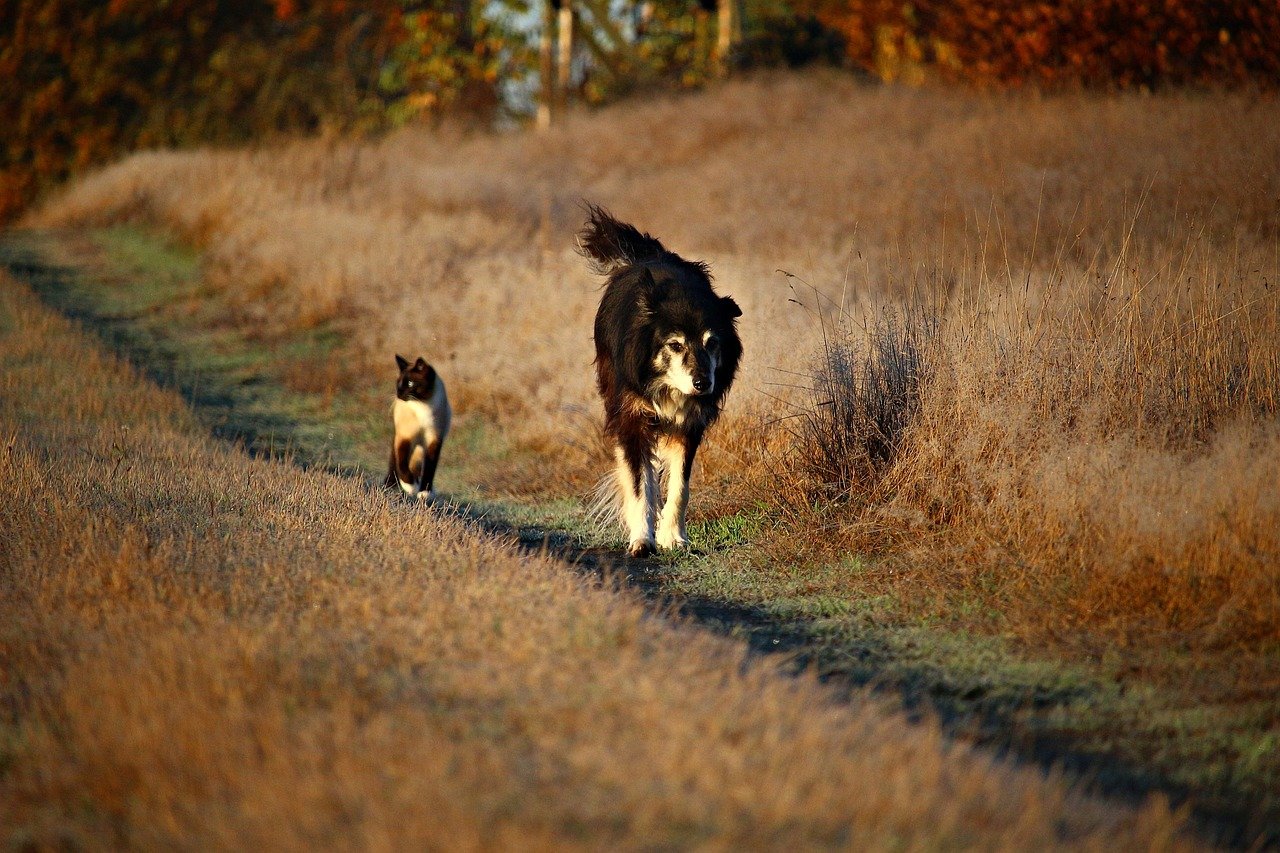When it comes to dogs and cats, not all breeds are on the same page. Some dogs, like Greyhounds or Jack Russells, have a strong prey drive and may see cats more as toys than friends. On the flip side, breeds like Golden Retrievers and Beagles tend to be gentle and sociable, often forming sweet friendships with feline companions. Understanding breed temperament is key before mixing pets. While training and early socialization can help, instincts still play a big role. If you’ve got a cat at home, choosing a dog that’s naturally more accepting of other animals makes life easier. After all, a peaceful home is one where the fur family gets along.
Siberian Husky: The Wild Child of the Dog World
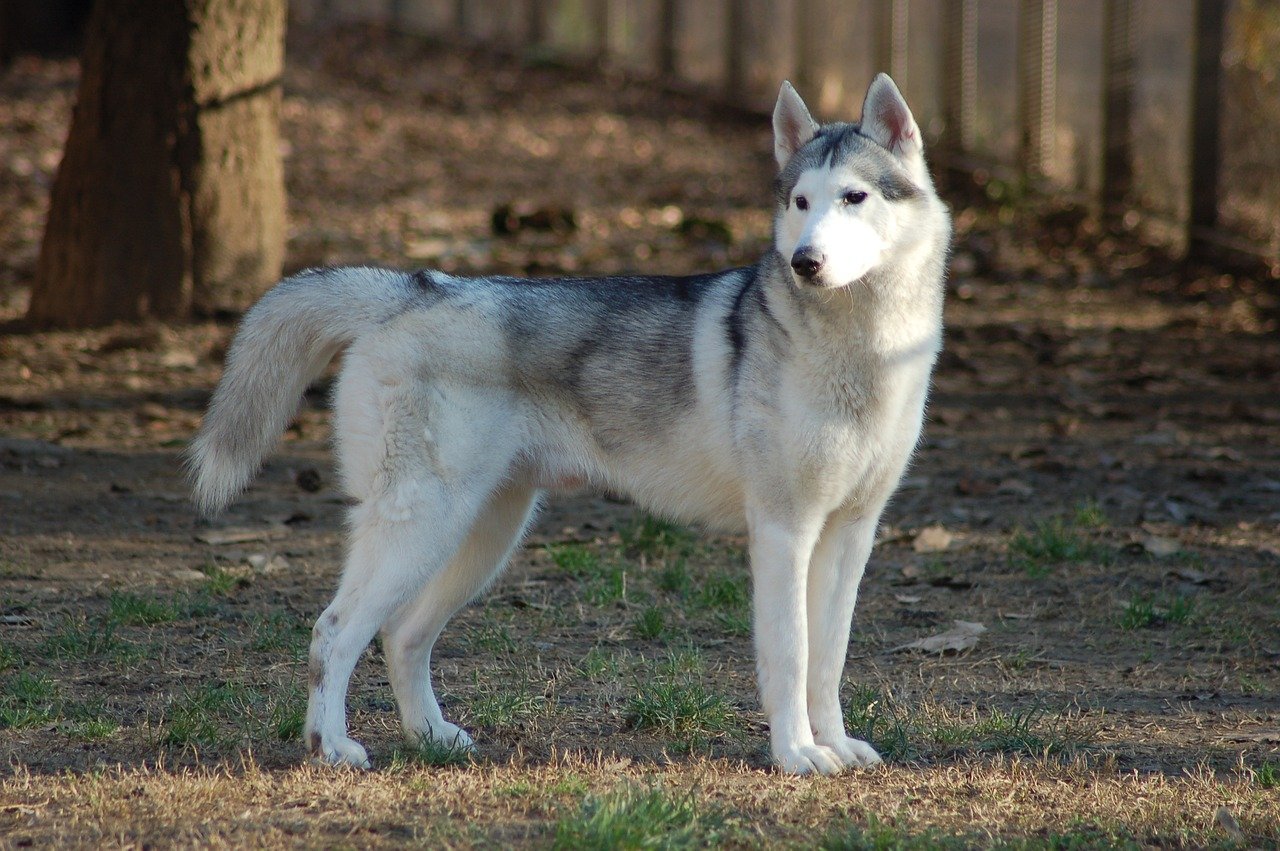
Siberian Huskies are stunning, energetic, and highly independent dogs. But when it comes to cats, their instincts can spell trouble. Bred to run and chase, Huskies often see cats as prey—no matter how cute and fluffy the kitty might be. Even with training, their stubborn streaks make them unpredictable. Stories from Husky owners often include shredded curtains, wild chases, and a very stressed-out cat hiding on top of the fridge. If you want peace between your pets, you might think twice before bringing a Husky and a cat under the same roof.
Greyhound: The Silent Chaser
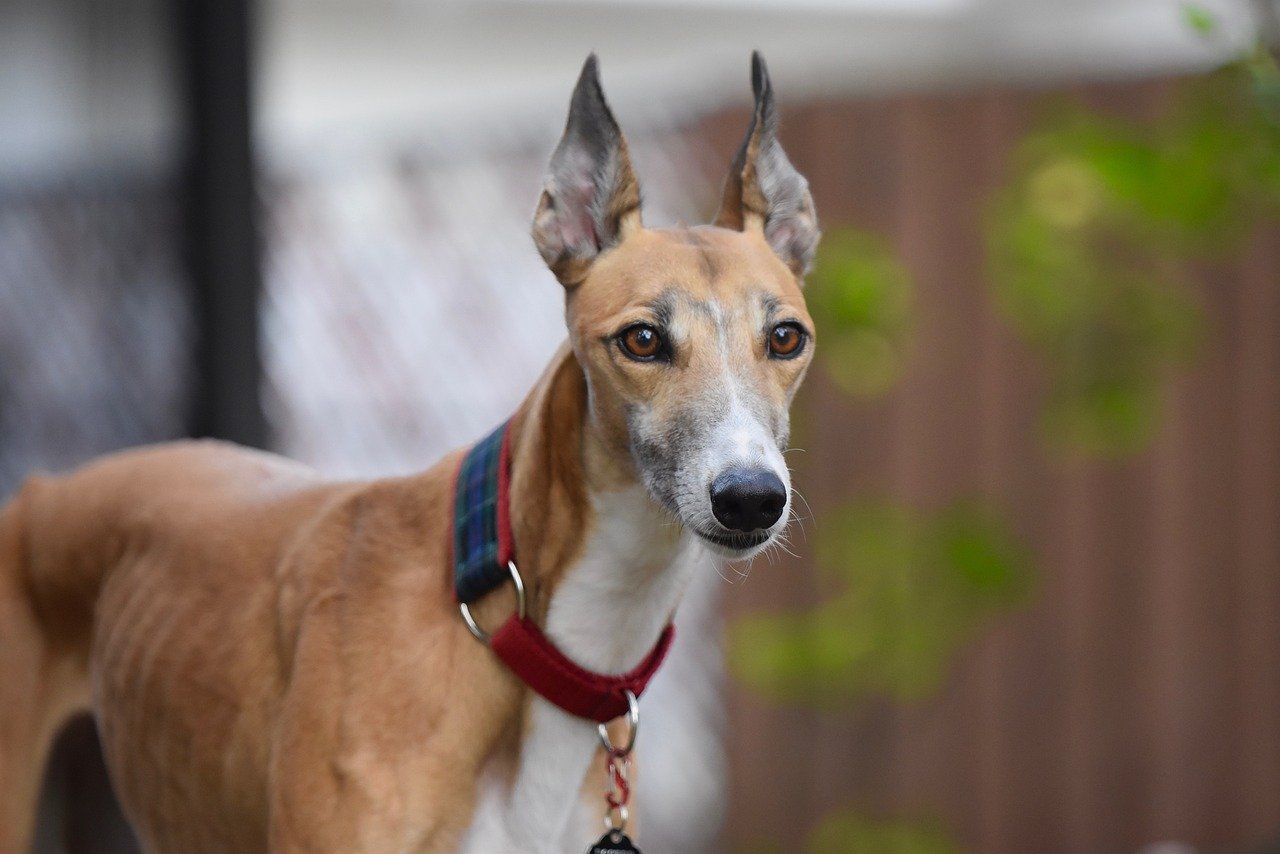
Greyhounds are famous for their speed and grace, but their racing backgrounds mean they have a strong prey drive. A running cat can trigger that inner racer in an instant. While some retired Greyhounds can adapt to cats, many simply can’t resist the urge to chase. That “zoom” you see at the racetrack? Imagine it happening in your living room, with your cat in the lead. Some people have had luck with careful introductions, but it’s a gamble that’s not for the faint-hearted.
Jack Russell Terrier: Tiny Tornado With a Mission
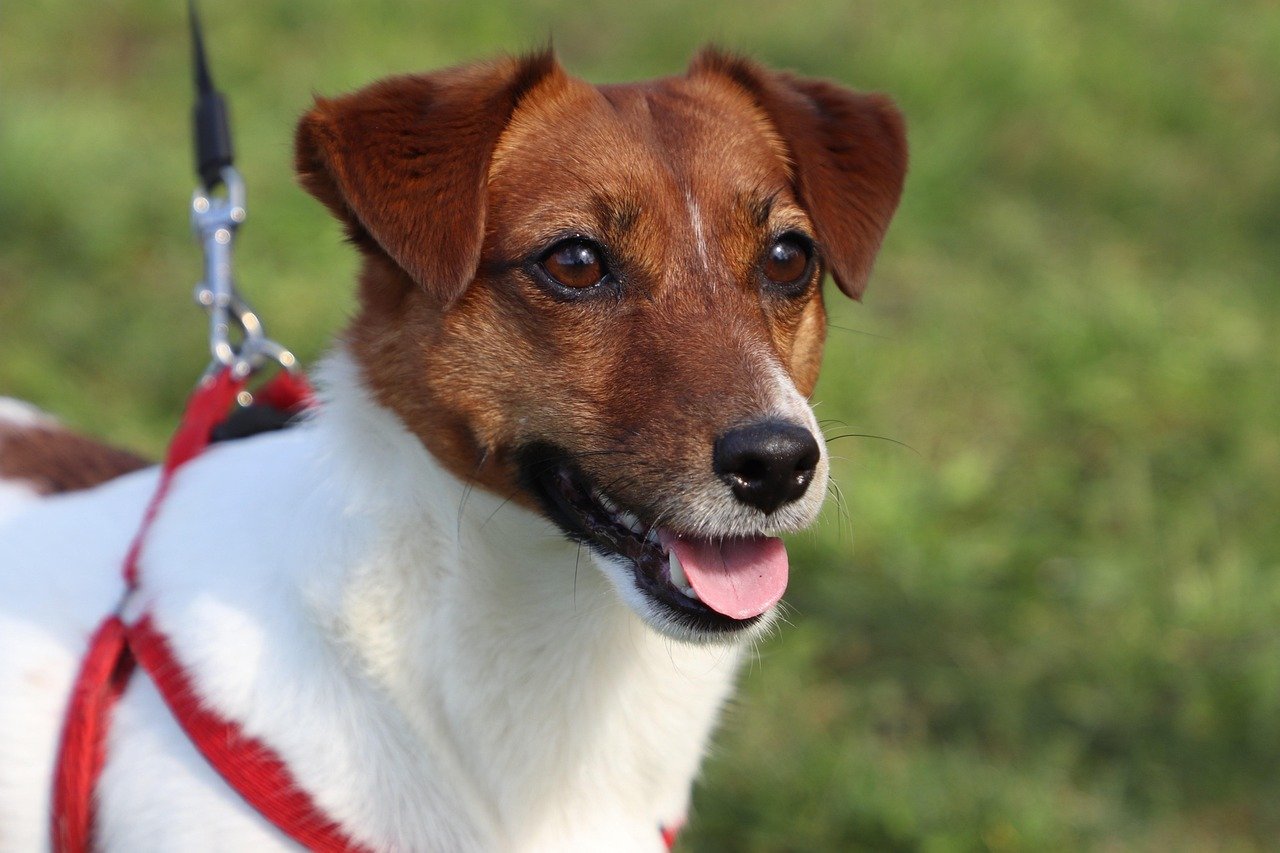
Don’t let their small size fool you—Jack Russells are fierce, determined, and bred to hunt. Their high energy and hunting instincts make them notorious for chasing small animals, including cats. Even the sweetest Jack Russell may see a cat as something to be chased, barked at, or cornered. Owners report that these clever little dogs can outsmart baby gates, leap onto furniture, and turn a peaceful cat’s day upside down in seconds.
Afghan Hound: The Elegant Pursuer
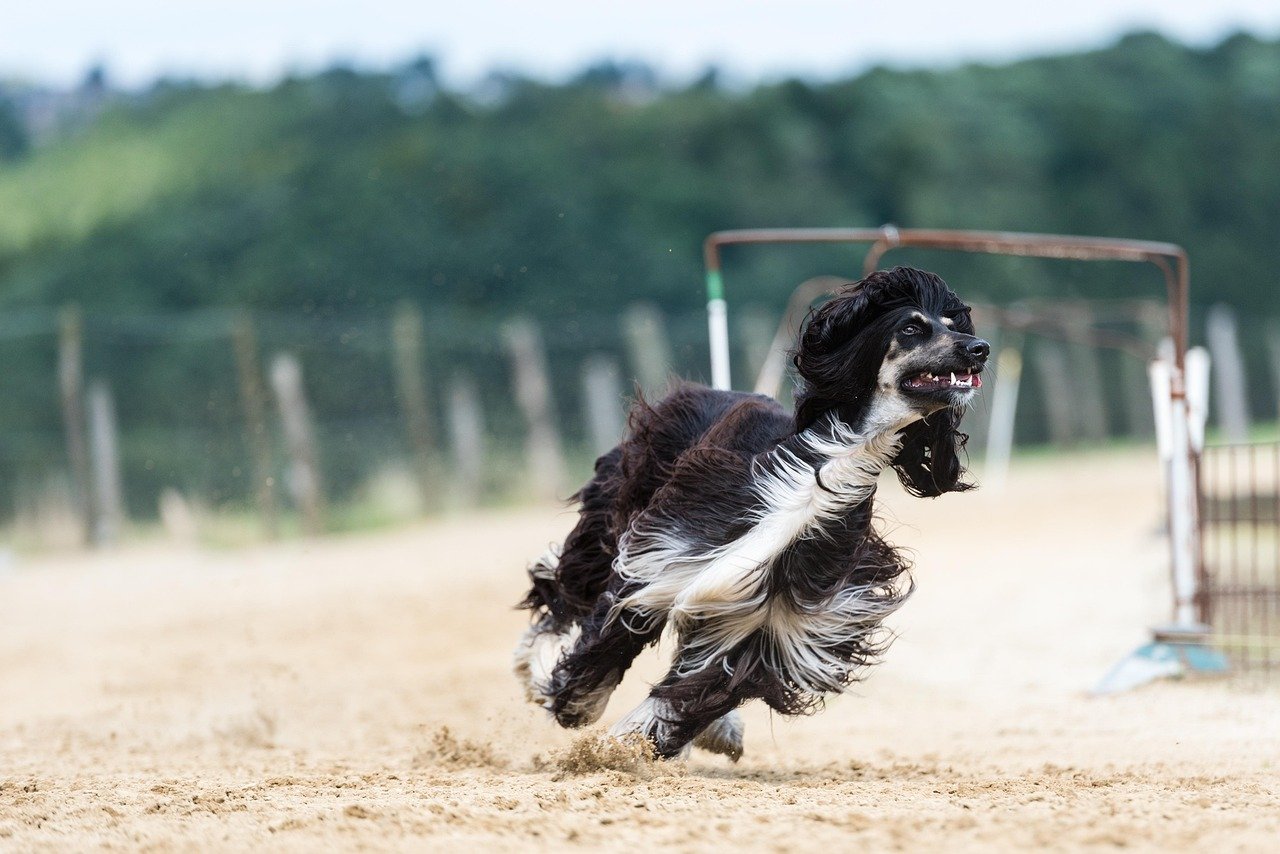
Afghan Hounds might look like runway models with their flowing coats, but they have a strong hunting heritage. These dogs were bred to chase down game in the mountains, and unfortunately, many cats fall into the same “chase me” category for them. Afghan Hounds are independent and hard to recall once they spot a moving target. If you have a cat who likes to dart around the house, an Afghan Hound may not be the best choice for your family.
Weimaraner: The Determined Hunter
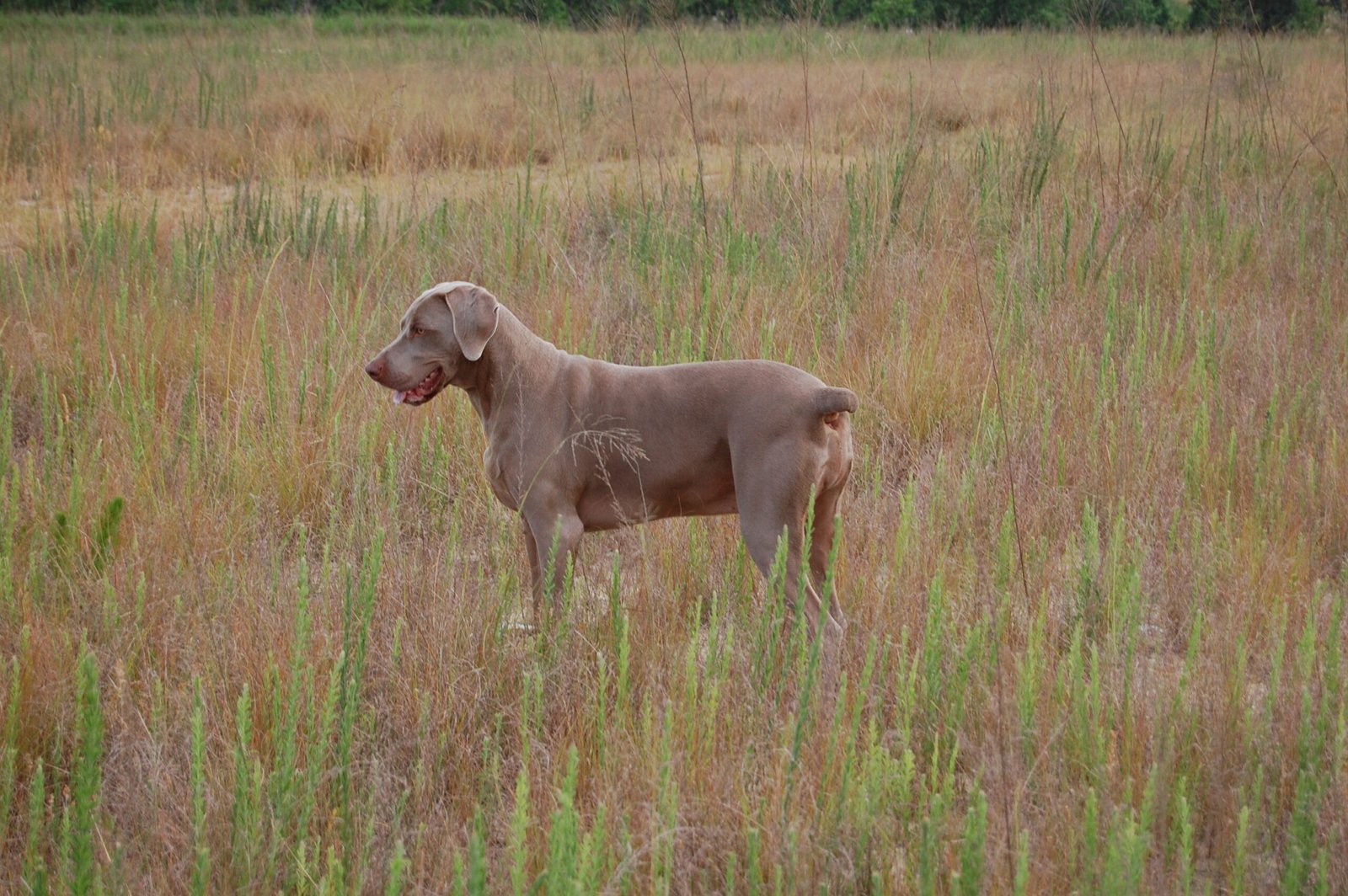
Weimaraners are loyal, intelligent, and strikingly beautiful, but their hunting roots run deep. These dogs were bred to track and bring down prey, which makes them instinctively interested in chasing smaller animals—including cats. Even with solid training, a Weimaraner’s natural drive often overrides any learned restraint. Owners who’ve tried to integrate cats often find themselves playing referee, or worse, dealing with a constant game of high-stakes tag.
Alaskan Malamute: Built for Power and Pursuit
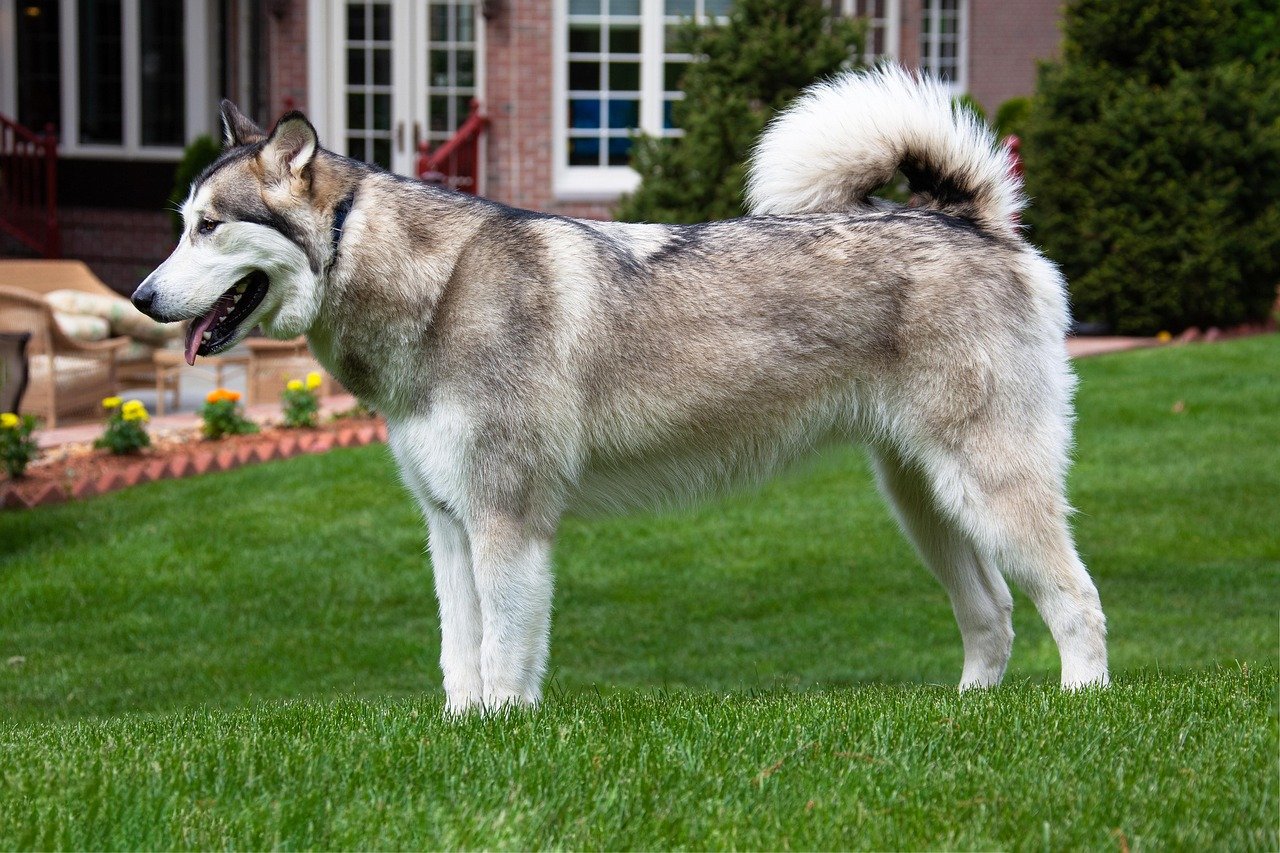
Alaskan Malamutes are powerful, energetic, and have a strong prey drive. Originally bred for hauling heavy loads across snowy terrain, their instincts also extend to chasing smaller animals. Cats, unfortunately, can trigger their chase response. Malamutes are stubborn and difficult to train out of their natural inclinations, making them a risky match for feline friends. Even with early socialization, it’s not uncommon for these dogs to see cats as something to be pursued.
Fox Terrier: The Chase is On
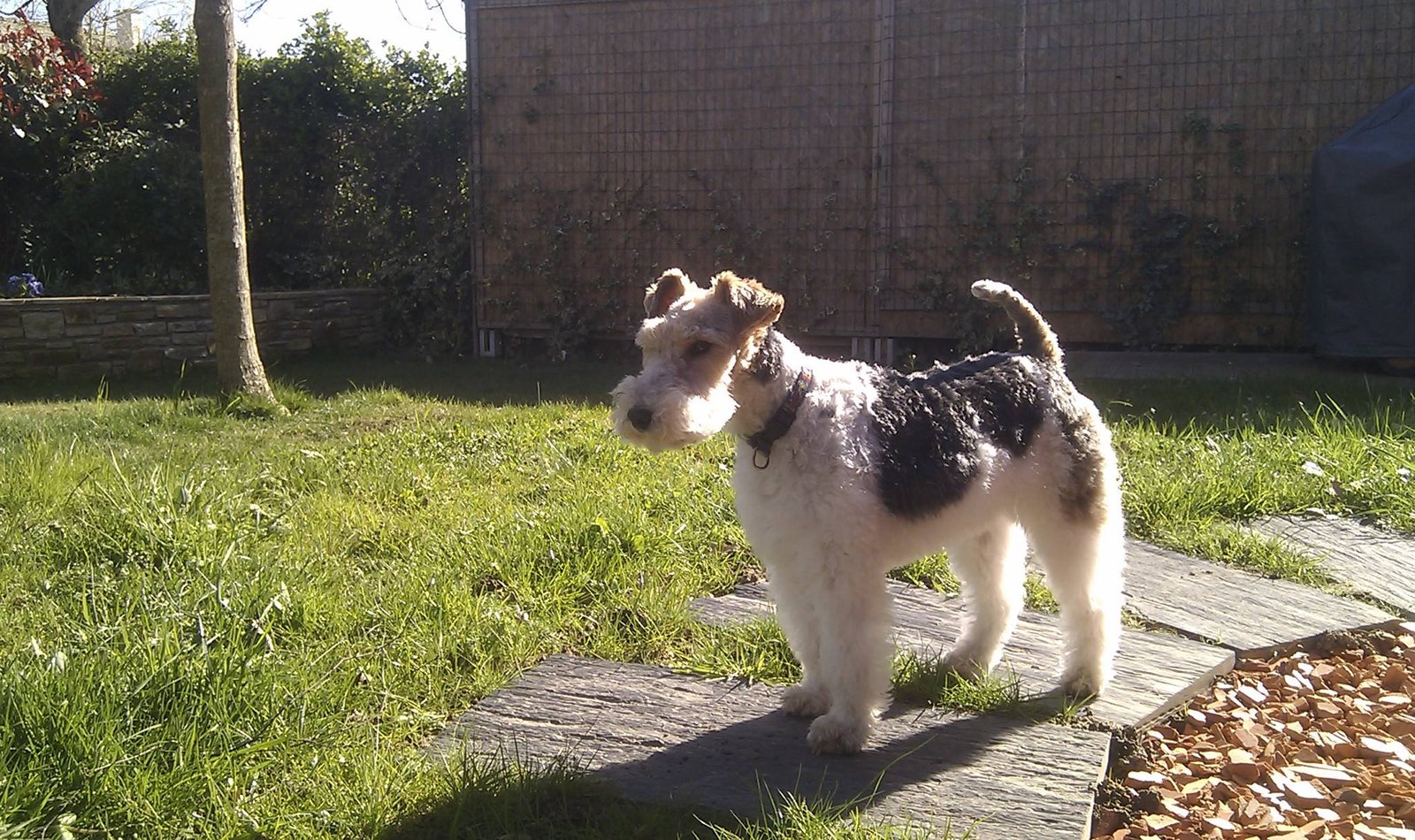
Fox Terriers are small but mighty, with boundless energy and a relentless desire to chase. True to their name, they were bred to flush out foxes and other small animals. Cats often find themselves on the receiving end of a Fox Terrier’s attention, leading to stressful encounters and, sometimes, injuries. Their quick reflexes and persistent nature make it hard for even the craftiest cats to escape their interest.
Irish Wolfhound: Gentle Giant, But Not for Cats
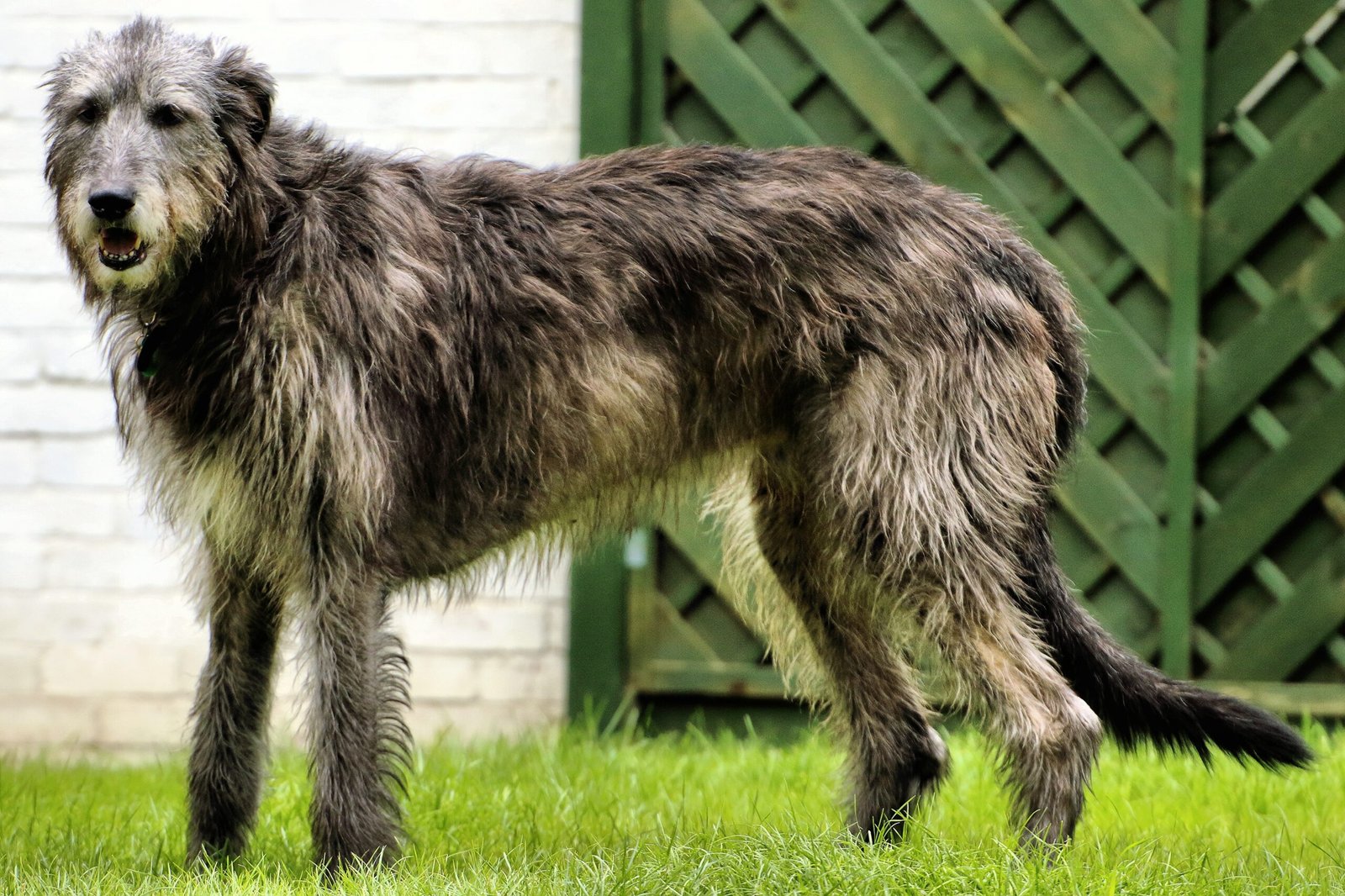
Irish Wolfhounds are known for their gentle demeanor with people, but their size and hunting instincts can be a bad combination for cats. These dogs were bred to hunt wolves and large game, so a scampering cat might accidentally trigger their predatory instincts. While some Wolfhounds can learn to live peacefully with cats, many households find it’s just too much of a risk, especially with smaller or timid felines.
Saluki: The Swift Stalker
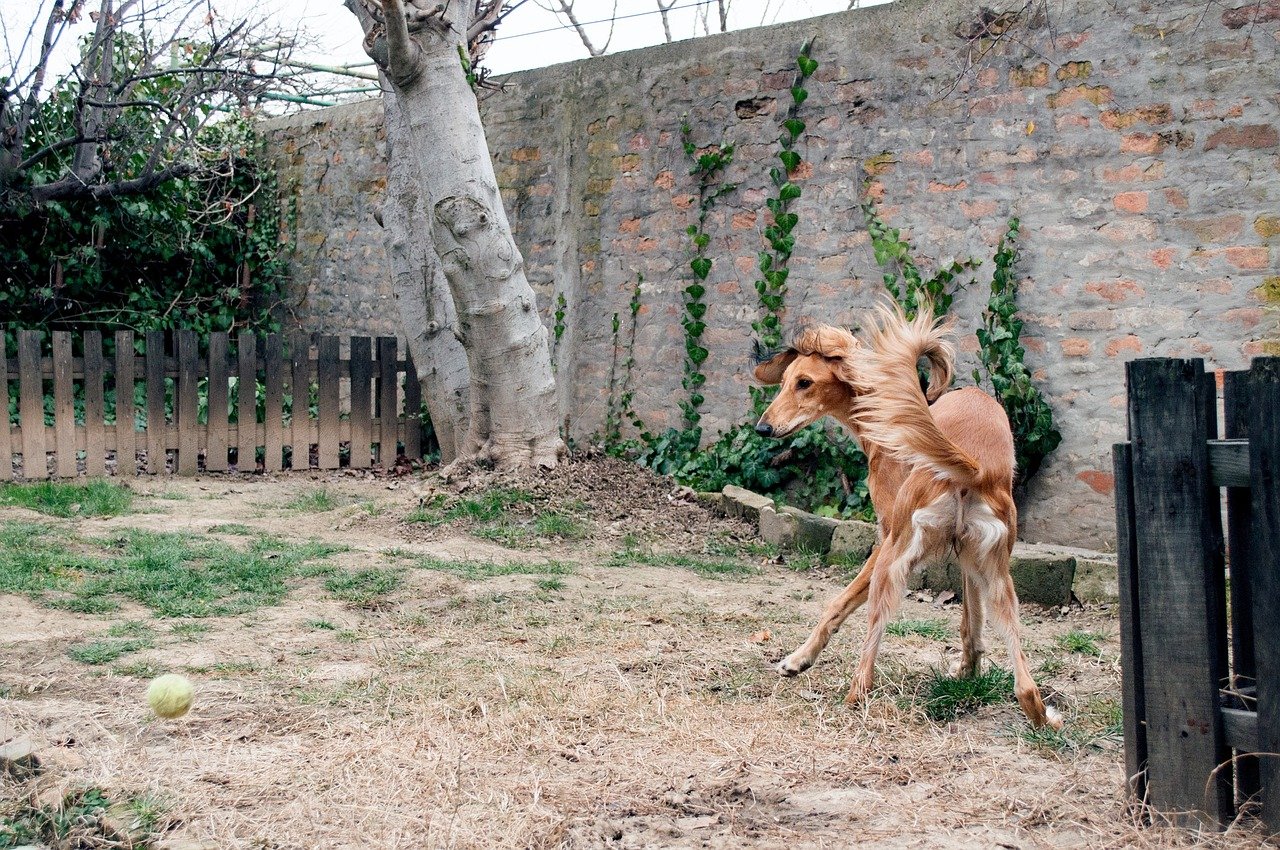
Salukis are graceful, elegant, and incredibly fast. Like other sighthounds, their eyes are their greatest asset, and anything that moves quickly—including cats—can become a target. Salukis may not be aggressive, but their chase instinct is almost impossible to curb. Owners report that even calm Salukis can suddenly erupt into a sprint when a cat dashes by, leading to chaos and stressed-out pets.
Basenji: The Clever Trickster
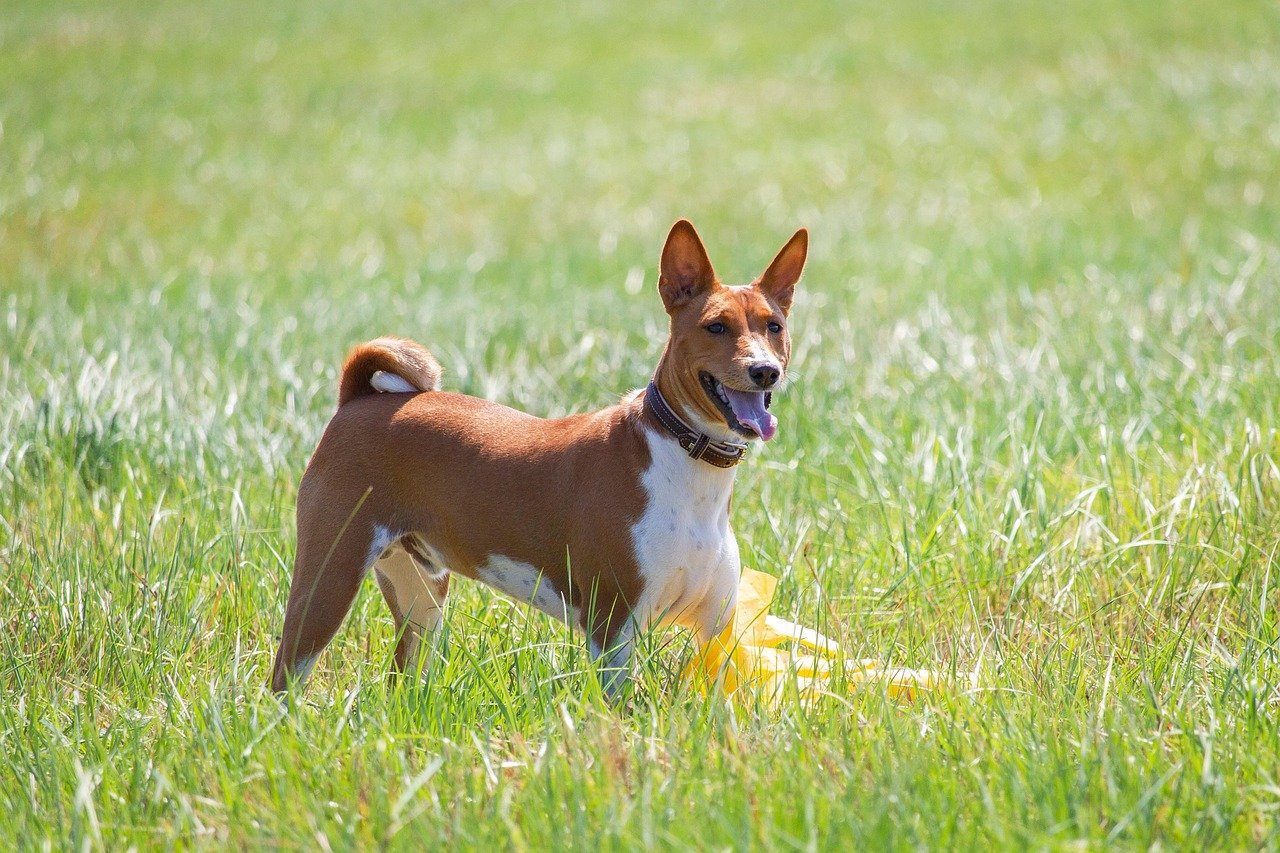
Basenjis, often called the “barkless dog,” are clever, curious, and notorious escape artists. They have a strong hunting background and can see cats as quarry rather than family. Their high intelligence and agility mean they can outmaneuver most barriers you put up. Many Basenji owners struggle to keep peace between their dogs and cats, often resorting to separate living spaces to keep everyone safe.
Golden Retriever: The Cat’s Best Friend
Golden Retrievers are famous for their gentle, friendly nature. They’re often described as the “ideal family dog,” and this extends to cats, too! Most Golden Retrievers are patient and tolerant, even when cats are curious or a bit mischievous. Owners across the world share heartwarming stories of their Goldens cuddling up with cats, sharing beds, and even grooming their feline friends. If you want a dog that’s likely to embrace your cat, a Golden Retriever is a top choice.
Labrador Retriever: A Heart as Big as Their Appetite
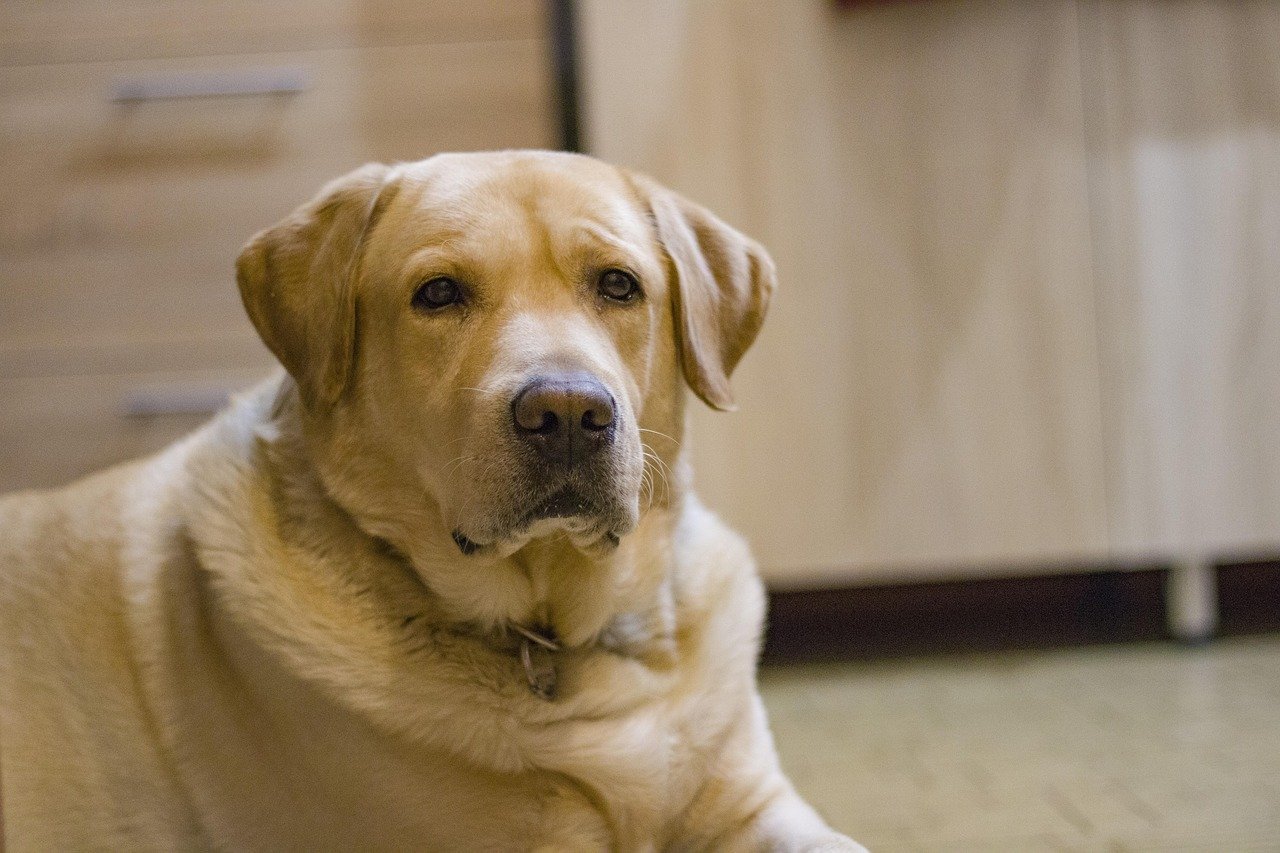
Labrador Retrievers are another breed known for their friendly, easygoing personalities. Labs are generally accepting of other animals, including cats. Their playful but gentle demeanor makes them a great companion for cats who like to play or just lounge around. Many Labs and cats become inseparable, with Labs often letting cats take the lead in play and even sharing their toys.
Beagle: The Social Butterfly
Beagles are outgoing, cheerful, and social dogs that love to be part of a pack. Their friendly nature usually extends to cats, especially if they’re introduced early. Beagles are more interested in sniffing out new scents than chasing down the family cat. Many Beagle-cat duos are known to nap together, play chase (on equal terms), and even share food bowls without fuss.
Papillon: Small, Sweet, and Sociable
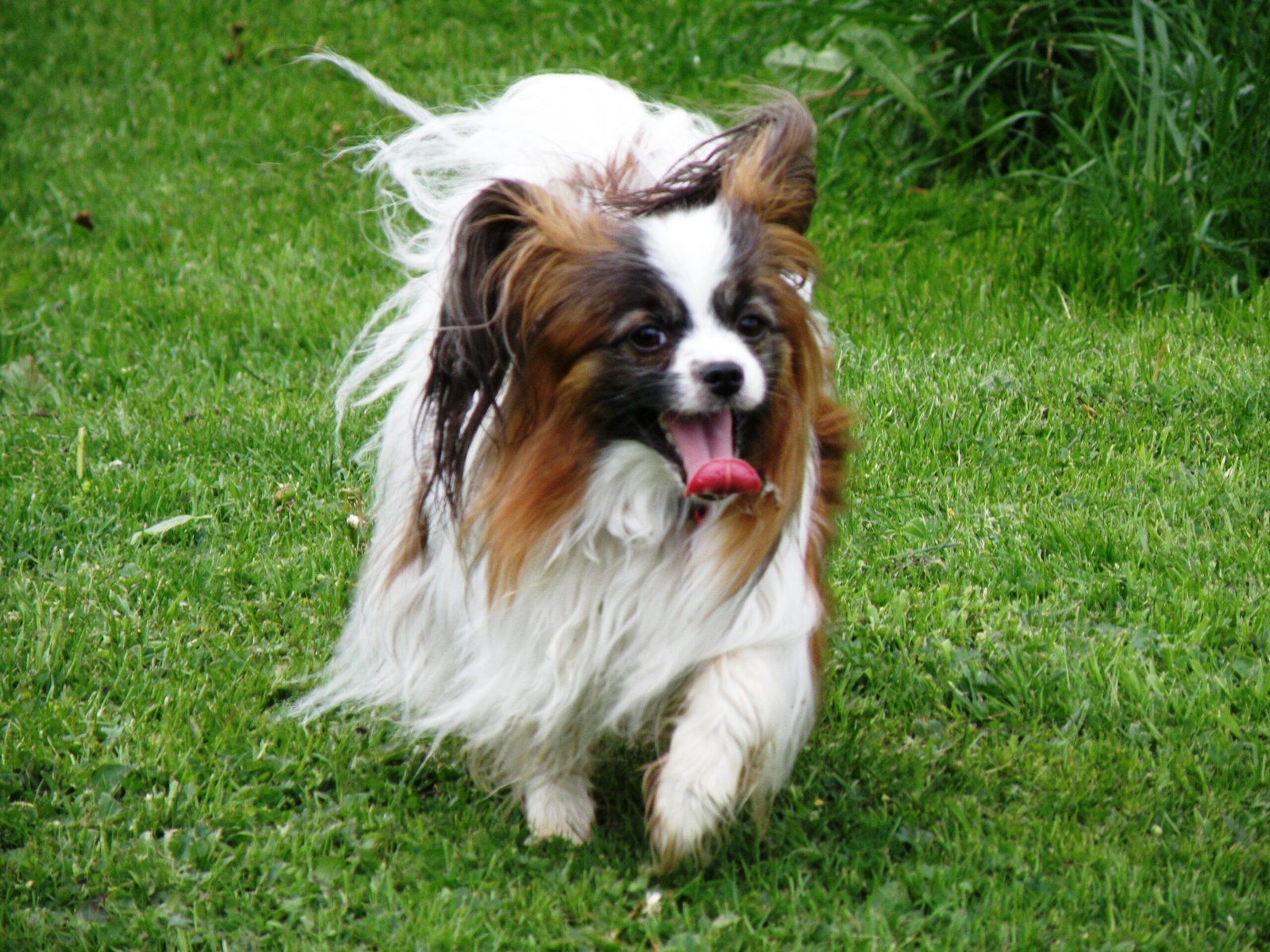
Papillons may be tiny, but their personalities are enormous. Known for their intelligence and affection, Papillons usually get along well with cats. They love companionship and are unlikely to see cats as prey. In many homes, Papillons and cats quickly become best buddies, curled up together on the couch or playing gentle games of tag. Their size and temperament make them a great match for feline friends.
Poodle: The Adaptable Companion
Poodles—whether Toy, Miniature, or Standard—are highly intelligent and adaptable. Their trainability and calm demeanor make them excellent companions for cats. Poodles tend to respect boundaries and pick up on household rules quickly, which helps keep peace with feline residents. Many families with Poodles and cats report harmonious relationships, with minimal drama and plenty of mutual affection.
Basset Hound: Laid-Back and Low-Key
Basset Hounds are famous for their relaxed attitude and droopy expressions. These easy-going dogs are rarely bothered by cats and usually prefer a nap over a chase. Bassets are gentle and tolerant, making them ideal companions for cats that don’t like being pestered. Their slow-moving nature can actually make cats feel more comfortable, leading to a peaceful coexistence.
Collie: The Gentle Protector
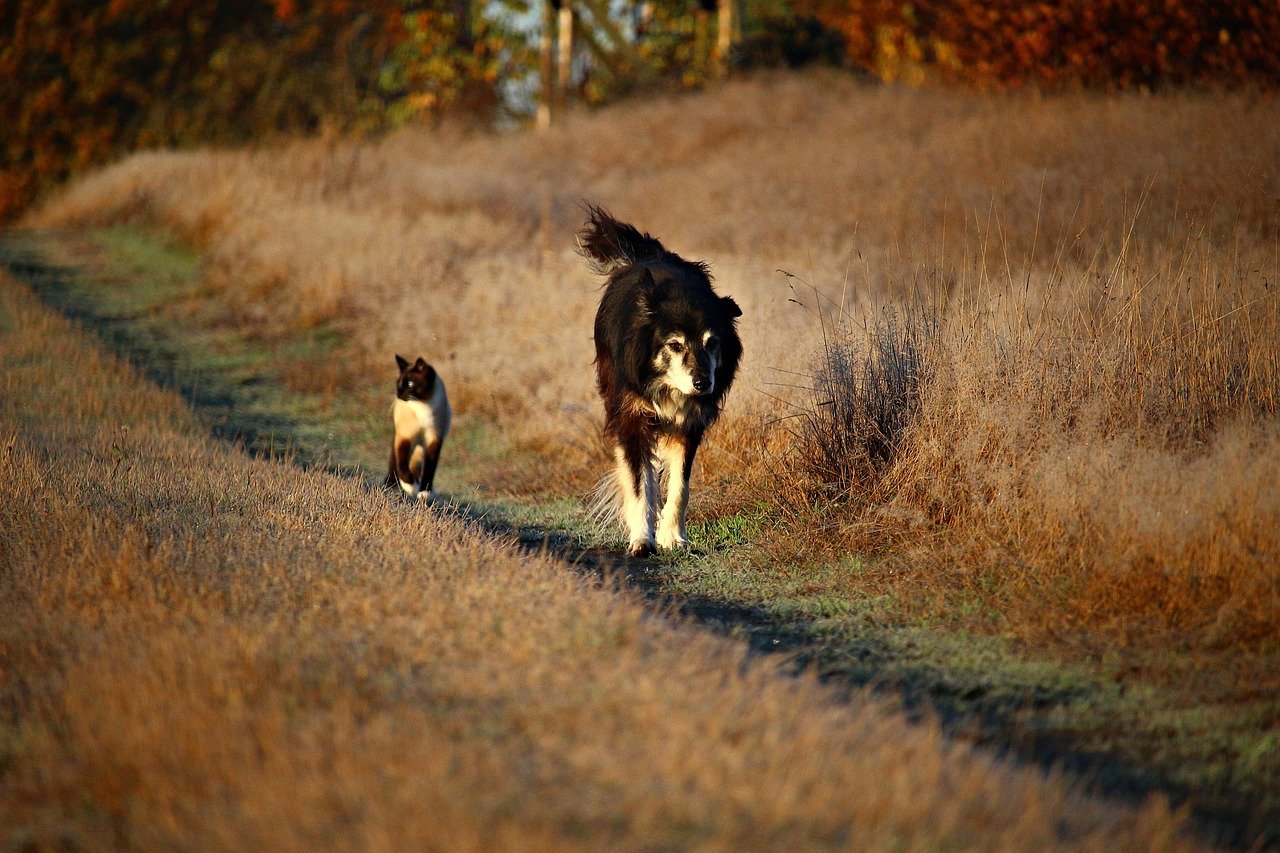
Collies are known for their intelligence and protective nature. These loyal dogs often extend their care to all members of the household, including cats. Collies are gentle and patient, which makes them excellent companions for even the most timid cats. Many Collie owners report that their dogs have acted as gentle guardians for kittens, watching over them and keeping them safe from harm.
Cavalier King Charles Spaniel: Sweetness Overload
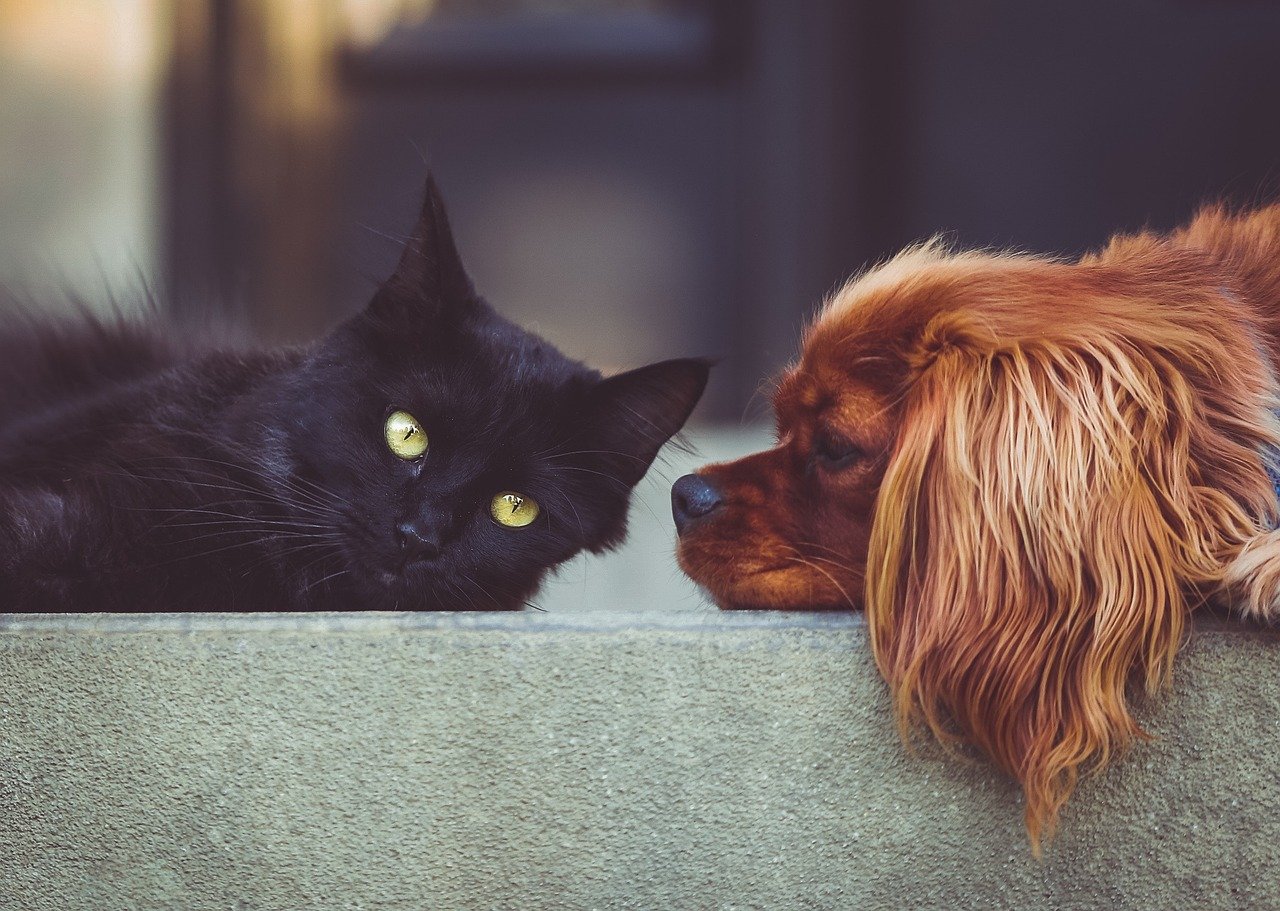
Cavalier King Charles Spaniels are affectionate, gentle, and eager to please. Their loving nature makes them one of the best breeds for homes with cats. Cavaliers often seek out feline companionship, snuggling up for naps or following their cat friends around the house. Because they’re so gentle and non-confrontational, they rarely have issues with even the most standoffish cats.
Newfoundland: A Gentle Giant
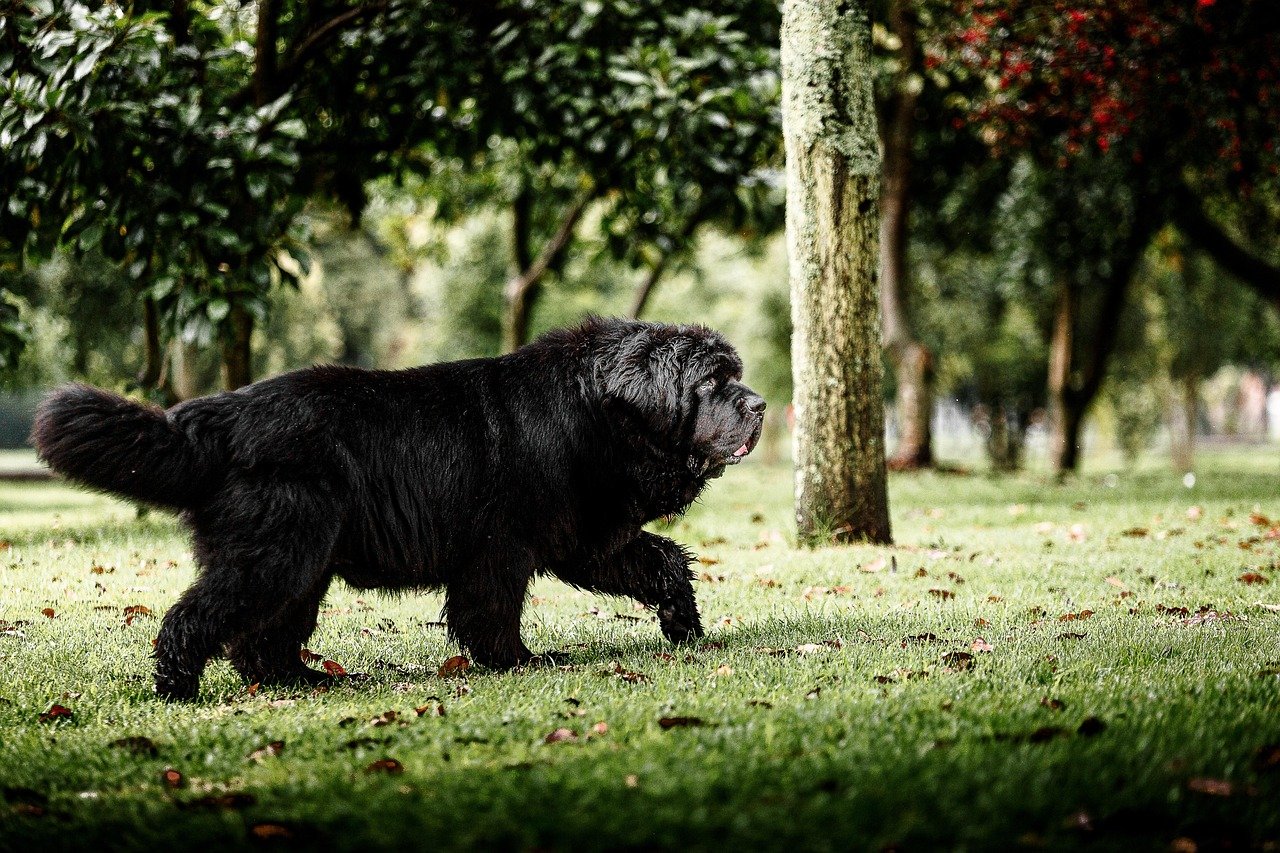
Newfoundlands are massive, but they have hearts of gold. Known for their sweet disposition and patience, these dogs are more likely to befriend a cat than chase it. Their calm demeanor helps cats feel secure, and their size means they’re not threatened by feline antics. Many families share stories of their Newfoundlands and cats sharing beds, toys, and even meals.
Boxer: Playful and Patient
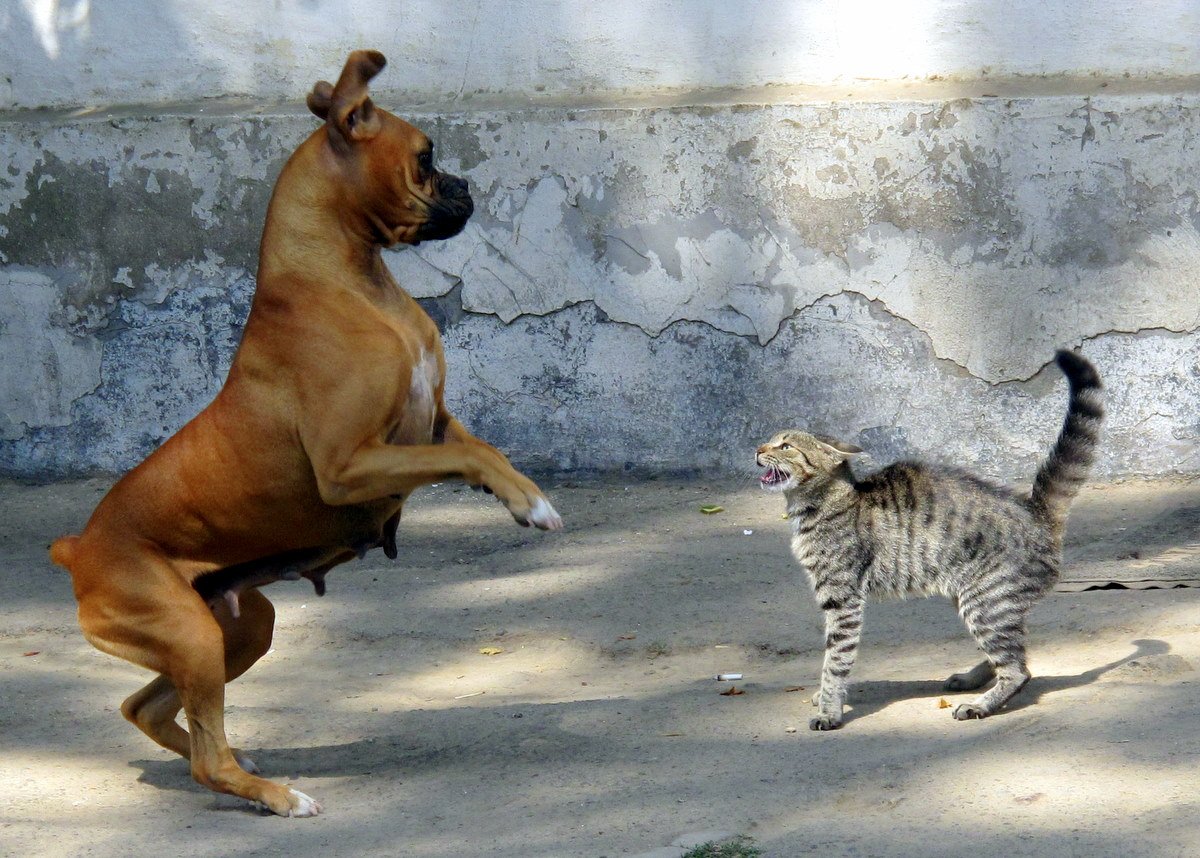
Boxers are energetic, playful, and surprisingly gentle with smaller animals. Their goofy personalities make them great playmates for cats that enjoy a bit of rough-and-tumble fun. Boxers are patient and tolerant, rarely showing aggression toward cats. With proper introductions, most Boxers and cats develop strong, affectionate bonds that last a lifetime.
Whether your dog and cat become besties or keep a cautious distance often comes down to breed instincts and early experiences. Knowing which dogs are more cat-friendly can help set the stage for harmony at home. With a little planning—and plenty of patience—you can create a peaceful, happy environment for everyone. After all, when pets get along, it’s pure magic!

Born and bred in South Africa, a Capetonian at heart. Amy-Leigh’s love for nature and animals was inherited from her Dad. He loves taking the family on road trips to experience nature at its finest; Amy-Leigh’s favourite being whale watching in Hermanus and spotting Kudu along the West Coast. Amy-Leigh holds a BA in English Literature and Communication Studies.

